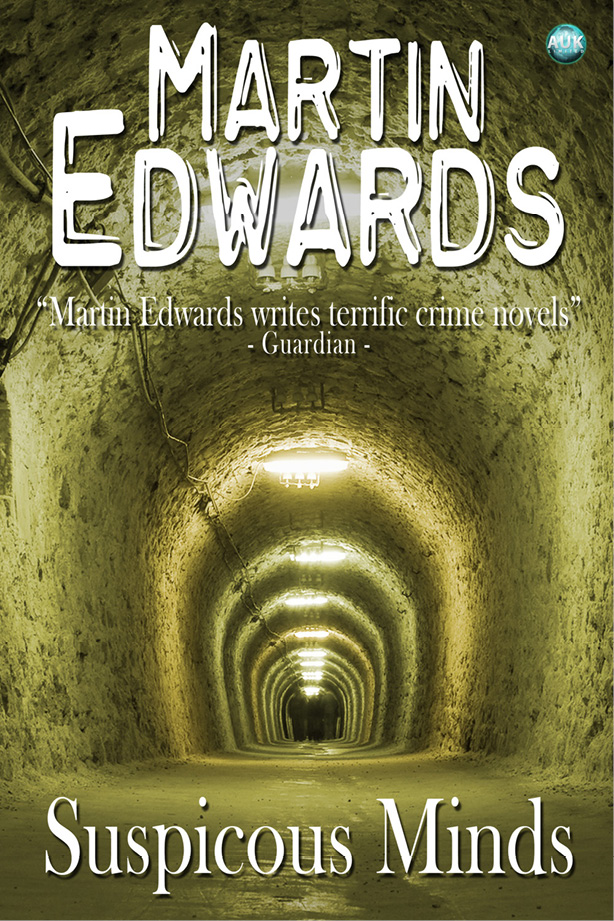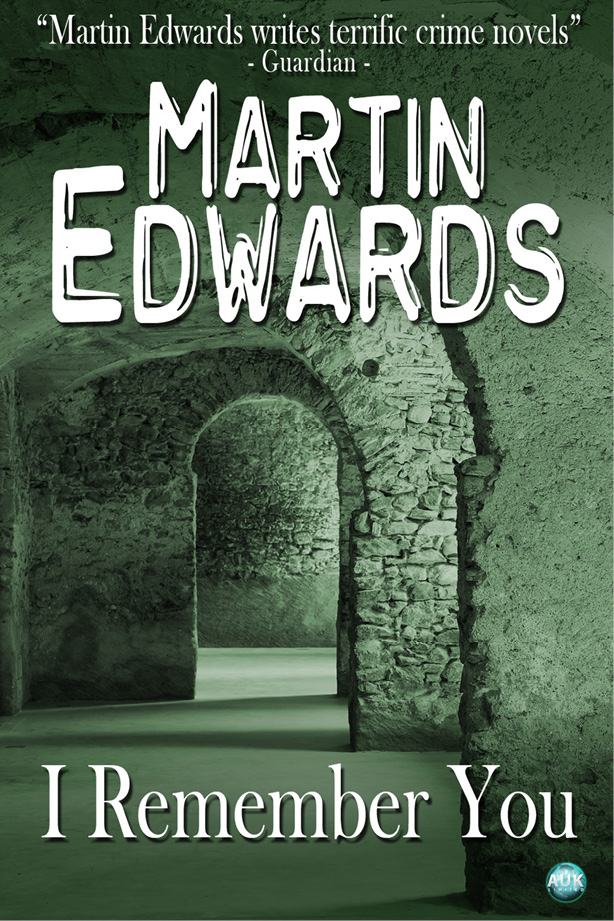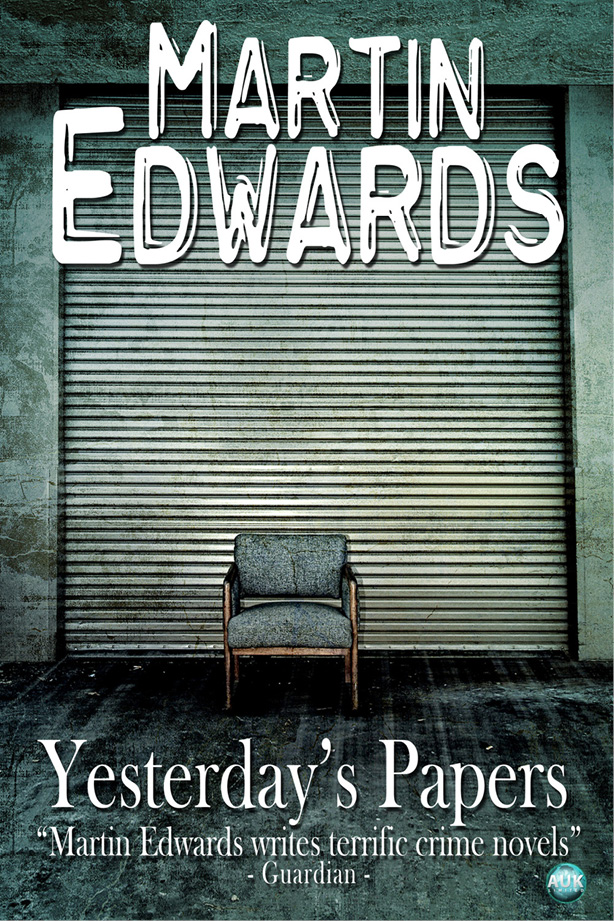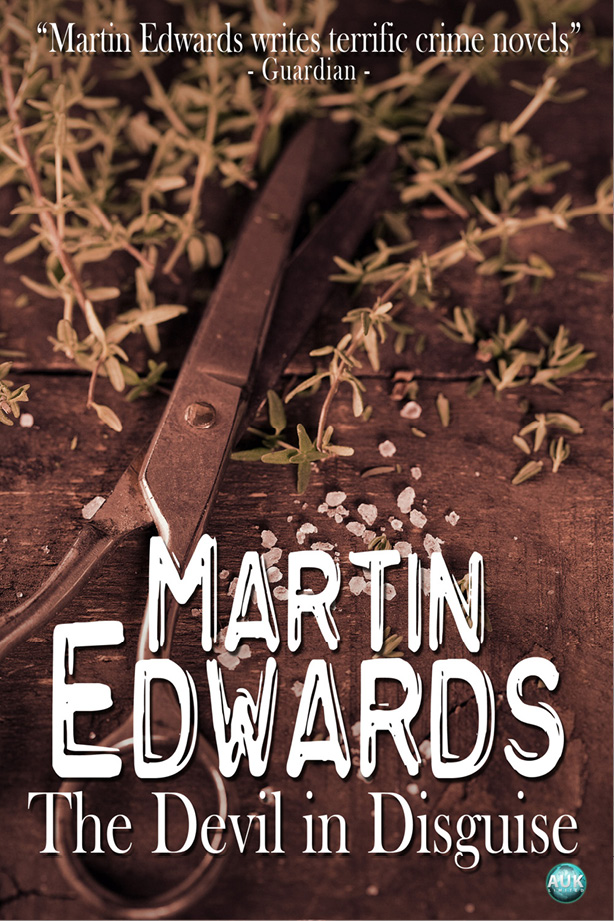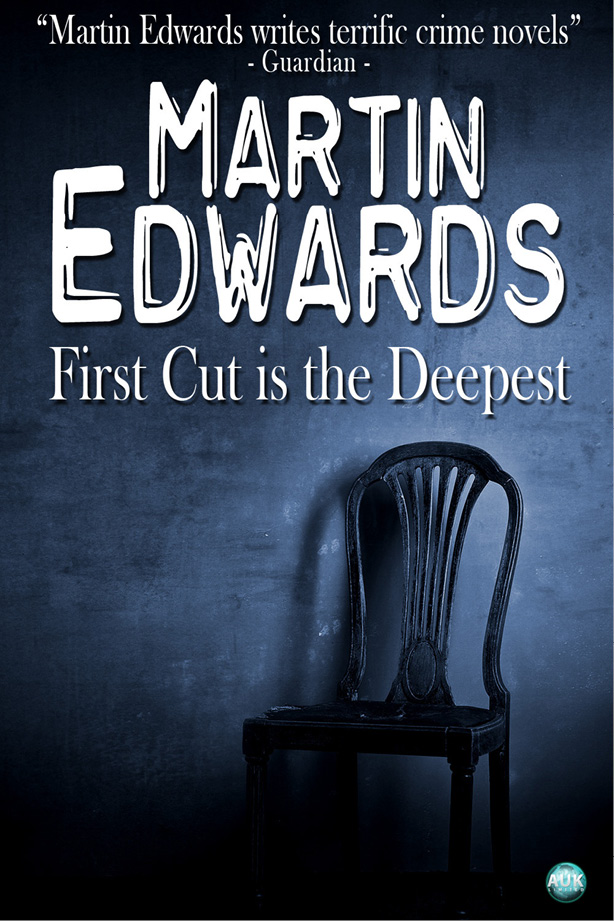All the Lonely People (28 page)
Read All the Lonely People Online
Authors: Martin Edwards
Tags: #detective, #noire, #petrocelli, #clue, #Suspense, #marple, #Fiction, #whodunnit, #death, #police, #morse, #taggart, #christie, #legal, #crime, #shoestring, #poirot, #law, #murder, #killer, #holmes, #ironside, #columbo, #solicitor, #hoskins, #Thriller, #hitchcock, #cluedo, #cracker, #diagnosis, #Mystery
Mandy proposed various revisions to the book, which I duly made. After she had sent it to a number of publishers, both Piatkus and Hodder & Stoughton expressed interest. Both wanted me to make some changes, which naturally differed from each other. A new author cannot afford to be a prima donna (nor can any author apart from a select few, come to that) and I re-wrote the book so as to address all the editorial comments.
By now it was late 1990: a busy time, but an exciting time. I'd become a partner in my firm and subsequently the head of its employment department, I'd married, and my wife was expecting our first child. I'd entered the Southport Writers' Circle competition again, with a short and rather macabre crime story, and this time I'd won â the story, “Are You Sitting Comfortably?”, became my first published fiction when it appeared in Bella, and then in Ellery Queen's Mystery Magazine. A few weeks after the competition success, I received the news that Piatkus had made an offer for my book. I could scarcely believe it.
Everything seemed to happen at once. Piatkus did not publish paperback editions in those days, but the rights were sold to Transworld, and there were audio and book club deals (later there would be TV deals, and scripts written by others for both radio and television based on the book, but frustratingly, none of them ever made it to the recording studio.) When All the Lonely People finally appeared in print, that wonderful moment, the reviews were extensive and generous â no online reviewing in those days, but much more coverage in newspapers such as The Times and The Guardian. One of the most generous reviews came from a highly accomplished lawyer-author, whom at that time I'd never met â Frances Fyfield.
My delight was complete when the book was one of seven nominated for the John Creasey Memorial Award, or Dagger, for the best first crime novel of the year. The other contenders included a talented American, Peter Blauner, but the inevitable winner was his countryman Walter Mosley, whose superb Devil in a Blue Dress was later filmed with Denzell Washington. How thrilling to arrive in such company, after a journey that had sometimes felt as though it would never end.
Harry Devlin's career was well and truly launched; his second case, recorded in Suspicious Minds, was already written up by the time the first came out. And, when time permitted, I wrote occasional short stories that fleshed out some details of his life and encounters with crime. After writing seven books about him, I was ready for a change, itching to develop my work in fresh directions, but following a long break, Harry returned in Waterloo Sunset, a book I loved writing.
For me, it's a huge thrill to see Harry's cases enjoy a new life, thanks to the technological miracle of e-book publishing. When I look back at All the Lonely People, twenty years on, I see a good deal that I would change if I were re-writing it today. That's only natural, especially for a writer as keen on revision and improvement as I am. Liverpool has transformed during the past two decades, as has the legal profession, in ways that nobody could have imagined â certainly not me.
Yet my overwhelming feeling about the book, whatever flaws I might detect if I want to be pernickety, is one of happiness, tinged with pride and an awareness that I've been exceptonally fortunate. It's good to have a dream, but it's a rare privilege to see that dream come true.
Meet Martin Edwards
Martin Edwards is an award-winning crime writer whose fifth and most recent Lake District Mystery, featuring DCI Hannah Scarlett and Daniel Kind, is
The Hanging Wood
, published in 2011. Earlier books in the series are
The Coffin Trail
(short-listed for the Theakston's prize for best British crime novel of 2006)
, The Cipher Garden, The Arsenic Labyrinth
(short-listed for the Lakeland Book of the Year award in 2008) and
The Serpent Pool
.
Martin has written eight novels about lawyer Harry Devlin, the first of which,
All the Lonely People
, was short-listed for the CWA John Creasey Memorial Dagger for the best first crime novel of the year. In addition he has published a stand-alone novel of psychological suspense,
Take My Breath Away
, and a much acclaimed novel featuring Dr Crippen,
Dancing for the Hangman
.
The latest Devlin novel,
Waterloo Sunset
, appeared in 2008.
Martin completed Bill Knox's last book,
The Lazarus Widow
, and has published a collection of short stories,
Where Do You Find Your Ideas? and other stories
; âTest Drive' was short-listed for the CWA Short Story Dagger in 2006, while âThe Bookbinder's Apprentice' won the same Dagger in 2008.
A well-known commentator on crime fiction, he has edited 20 anthologies and published eight non-fiction books, including a study of homicide investigation,
Urge to Kill
.In 2008 he was elected to membership of the prestigious Detection Club. He was subsequently appointed Archivist to the Detection Club, and is also Archivist to the Crime Writers' Association. He received the Red Herring Award for services to the CWA in 2011.
In his spare time Martin is a partner in a national law firm, Weightmans LLP. His website is
www.martinedwardsbooks.com
and his blog
www.doyouwriteunderyourownname.blogspot.
com/
Bibliography
Harry Devlin Series
All the Lonely People
(1991)
Suspicious Minds
(1992)
I Remember You
(1993)
Yesterday's Papers
(1994)
Eve of Destruction
(1996)
The Devil in Disguise
(1998)
First Cut Is the Deepest
(1999)
Waterloo Sunset
(2008).
Lake District Mysteries
The Coffin Trail
(2004)
The Cipher Garden
(2005)
The Arsenic Labyrinth
(2007).
The Serpent Pool
(2010)
The Hanging Wood
(2011)
Other Novels
The Lazarus Widow
(with Bill Knox) (1999)
Take My Breath Away
(2002)
Dancing for the Hangman
(2008)
Collected Short stories
Where Do You Find Your Ideas? and Other Stories
(2001)
Anthologies edited
Northern Blood
(1992)
Northern Blood 2
(1995)
Anglian Blood
(with Robert Church) (1995)
Perfectly Criminal
(1996)
Whydunit?
(1997)
Past Crimes
(1998)
Northern Blood 3
(1998)
Missing Persons
(1999)
Scenes of Crime
(2000)
Murder Squad
(2001)
Green for Danger
(2003)
Mysterious Pleasures
(2003)
Crime in the City
(2004)
Crime on the Move
(2005)
I.D.: crimes of identity
(2006)
The Trinity Cat and other mysteries
(with Sue Feder) (2006)
M.O.: crimes of practice
(2008)
Original Sins
(2010)
Best Eaten Cold
(2011)
Guilty Consciences
(2011)
Non-fiction
Understanding Computer Contracts
(1983)
Understanding Dismissal Law
(two editions)
Managing Redundancies
(1986)
Executive Survival
(two editions)
Careers in the Law
(six editions)
Know-How for Employment Lawyers
(with others) (1995)
Urge to Kill
(2002)
Tolley's Equal Opportunities Handbook
(four editions)
Martin Edwards: an Appreciation
by Michael Jecks
Both as a crime writer and as a keen exponent of the genre, Martin Edwards has long been sought out by his peers, and is now becoming recognised as a contemporary crime author at the top of his form.
Born in Knutsford, Cheshire, Martin went to school in Northwich before taking a first class honours degree in law at Balliol College, Oxford. From there he went on to join a law firm and is now a highly respected lawyer specializing in employment law. He is the author of Tottel's
Equal Opportunities Handbook
, 4th edition, 2007.
Early in his career, he began writing professional articles and completed his first book at 27, covering the purchase of business computers. His non-fiction work continues with over 1000 articles in newspapers and magazines, and seven books dedicated to the law (two of which were co-authored).
His life of crime began a little later with the Harry Devlin series, set in Liverpool. The first of his series,
All The Lonely People
(1991), was shortlisted for the CWA John Creasey Memorial Dagger for the first work of crime fiction by a new writer. With the advent of his second novel, Martin Edwards was becoming recognised as a writer of imagination and flair. This and subsequent books also referenced song titles from his youth.
The Harry Devlin books demonstrate a great sympathy for Liverpool, past and present, with gritty, realistic stories. âLiverpool is a city with a tremendous resilience of spirit and character,' he says in
Scene of the Crime,
(2002). Although his protagonist is a self-effacing Scousers with a dry wit, Edwards is not a writer for the faint-hearted. âHis gifts are of the more classical variety - there are points in his novels when I think I'm reading Graham Greene,' wrote Ed Gorman, while
Crime Time
magazine said âThe novels successfully combine the style of the traditional English detective story with a darker noir sensibility.'
More recently Martin Edwards has moved into the Lake District with mystery stories featuring an historian, Daniel Kind, and DCI Hannah Scarlett. The first of these,
The Coffin Trail
, was short listed for the Theakston's Old Peculier Crime Novel of the year 2006.
In this book Martin Edwards made good use of his legal knowledge. DCI Hannah Scarlett is in charge of a cold case review unit, attempting to solve old crimes, and when Daniel Kind moves into a new house, seeking a fresh start in the idyllic setting of the Lake District, he and she are drawn together by the murder of a young woman. The killer, who died before he could be convicted, used to live in Kind's new cottage.
Not only does Edwards manage to demonstrate a detailed knowledge of the law (which he is careful never to force upon the reader), with the Lake District mysteries he has managed to bring the locations to vivid life. He has a skill for acute description which is rare - especially amongst those who are more commonly used to writing about city life.
More recently Edwards has published
Take My Breath Away
, a stand-alone psychological suspense novel, which offers a satiric portrait of an upmarket London law firm eerily reminiscent of Tony Blair's New Labour government.
Utilising his legal experience, he has written articles about actual crimes.
Catching Killers
was an illustrated book describing how police officers work on a homicide case all the way from the crime scene itself to presenting evidence in court.
When the writer Bill Knox died, Edwards was asked by his publisher to help complete his final manuscript, on which Knox had been working until days before his death. Bill Knox's method of writing was to hone each separate section of his books before moving on to the next, so Martin was left with the main thrust of the story, together with some jotted notes and newspaper clippings. From these he managed to complete
The Lazarus Widow
in an unusal departure for him.
More conventionally, Martin Edwards is a prolific writer of short stories. He has published the anthology
Where Do You Find Your Ideas?
which offers a mix of Harry Devlin tales mingled with historical and psychological short stories. His
Test Drive
was short listed for the CWA Short Story Dagger.
Edwards edits the regular CWA anthologies of short stories. These works have included
Green for Danger
, and
I.D. Crimes of Identity
, which included his own unusual and notable story
InDex
. In 2003 he also edited the CWA's
Mysterious Pleasures
anthology, which was a collection of the Golden Dagger winners' short stories to celebrate the CWA's Golden Jubilee.
A founder member of the performance and writing group, Murder Squad, Martin Edwards has found the time to edit their two anthologies.
When not writing and editing, Edwards is an enthusiastic reader and collector of crime fiction. He reviews for magazines, books and websites, and his essays have appeared in many collections.
He is the chairman of the CWA's nominations sub-committee for the Cartier Diamond Dagger Award, the world's most prestigious award for crime writing.
Martin Edwards is one of those rare creatures, a crime-writer's crime-writer. His plotting is as subtle as any, his writing deft and fluid, his characterisation precise, and his descriptions of the locations give the reader the impression that they could almost walk along the land blindfolded. He brings them all to life.
(An earlier version of this article appeared in
British Crime Writing: An Encyclopaedia,
edited by Barry Forshaw)
Also Available
